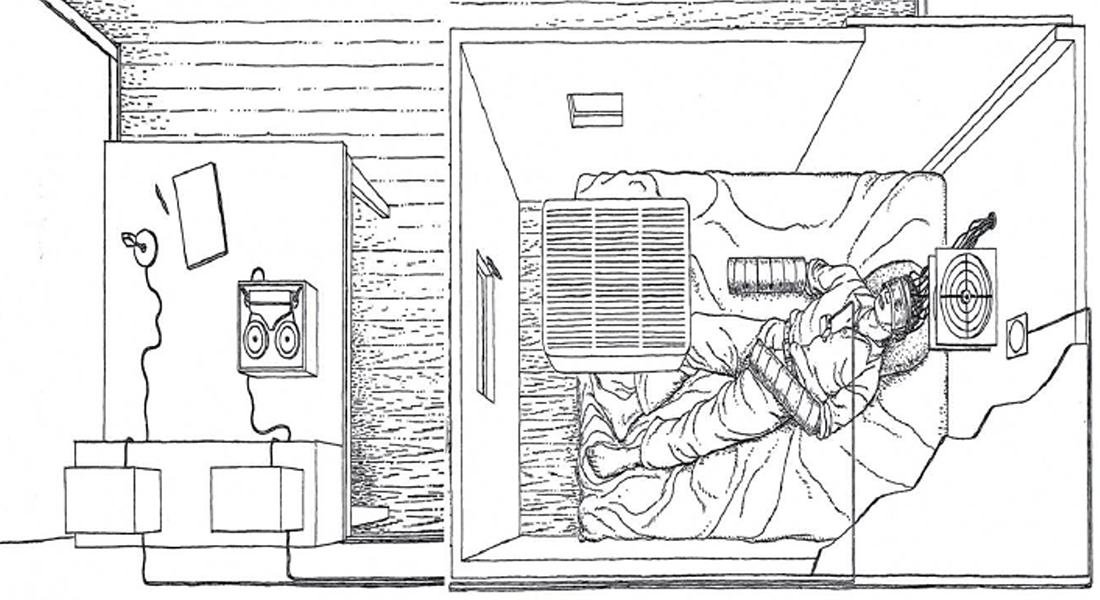Experiments in Consciousness: The Neuro Disciplines in the 1950s
Seminar with Prof. Andreas Killen (The City College of New York).

The isolation chamber designed in Donald Hebb’s lab, McGill University.
The middle of the twentieth century was a watershed moment in the history of brain science. New technologies like EEG encouraged clinicians and researchers in neurophysiology, neurosurgery, and neuropsychology in the belief that they stood at the threshold of epochal developments in the understanding of epilepsy, mental illness, memory, learning, and perception. In making the brain an “explorable organ” these figures began the process of mapping the neural coordinates of important features of consciousness.
But this period was also part of what Eric Hobsbawm called “the age of extremes,” and in which considerable research was done on the human organism’s response to extreme states. New understandings of the brain became part of the history of the early Cold War, and amid these circumstances the dream of a revolutionary new science of brain and behavior took on notably dark features. This is illustrated, for instance, by the way that neuropsychologist Donald Hebb’s research on sensory deprivation become central to Western investigations into Communist interrogation practices. This paper will both explore these entanglements and will also suggest that attention to them has prevented a proper appreciation of the contribution that Hebb’s isolation research made to the cognitive revolution that is his lasting legacy.
Bio
Andreas Killen specializes in the cultural and intellectual history of modern Europe, especially Germany. He is the author of Berlin Electropolis: Shock, Nerves, and German Modernity (University of California Press 2006) and Homo Cinematicus: Science, Motion Pictures, and the Making of Modern Germany (University of Pennsylvania Press, 2017).
Map of South Campus
View directions.
View on map of the Faculty of Humanities - South Campus.
View map of South Campus (pdf).
